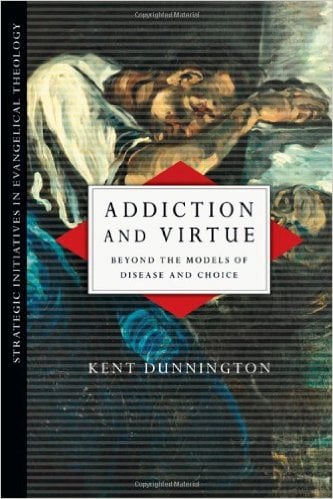⏱️ Estimated Reading Time: 4 min read
Whenever professionals cross disciplines, there are some interesting results. So, when philosopher Kent Dunnington takes on the task of understanding and describing the nature of addictions, we get a fascinating and fresh look at this important subject. While Dunnington is not an expert in addiction counseling he knows how to ask good questions and in the process reveals some major holes in the current theories of addiction. The result for readers is an incredibly unique work on the subject.
Current theories about the nature of addiction tend to bounce between two poles: disease and choice. Either you are biologically enslaved to addiction, or you are morally broken, these are the only two options for considering the nature and causes of addiction. Neither theory, however, seems to fit with the actual description of the addict. There has to be a third option, and Dunnington believes that the concept of habit, rightly understood, provides the via media between these two poles. Drawing on the insights of Aristotle, Thomas Aquinas, and Augustine he makes a compelling case for understanding addiction as a self-taught response that overtime plays out without conscious thought (i.e. a habit). In the words of Ed Welch, addiction is “voluntary slavery” (see Crossroads). It involves both our choosing and our being enslaved.
Dunnington builds his case progressively, premise by premise, like a philosopher. He starts by exposing the holes in the disease and choice models. He exposes the paradoxical reality that while many believe that addiction is a disease they offer solutions, and many find recovery, by means other than pharmacological. He listens to experts and addicts in these parts of the book as he makes his compelling case against the disease and choice models of addiction. For Dunnington, these models are insufficient to explain both the experiences of addicts and their various recoveries. He writes:
My working hypothesis is that there is something philosophically and theologically profound about addiction but that standard and entrenched paradigms must be recast or overthrown in order to bring what is at stake into stark relief. (12)
He utilizes here Aristotle’s argument for “incontinent action.” This category of behavior refers to as “what takes place when an agent acts against his own better judgment” (41). An addict knows that their behavior is destructive, they may even describe themselves as not wanting to do it, and at some level they possess the ability not to do it, and yet the still drink or use drugs. This is incontinent behavior and it opens up a fresh way of looking at the subject of addiction.
From this point, Dunnington moves into the more theological territory. He discusses the morality of the addict and notes in particular that addiction is not purely hedonism. It is in fact, he argues, interested in “moral and intellectual goods.” Here he also encourages the use of the label “sin” in describing addiction and demonstrates the relationship between addiction and worship. The final chapter of the book explores both how the church can care for addicts and what we can learn from them.
Overall this is a fascinating book. Its depth of insight cannot be summarized in this simple review. Having studied and worked with addicts for the last eight years now, I have not come across anything quite like Addiction and Virtue. Others have made some similar arguments – so, various addiction counselors have argued for or against the disease model; biblical counselors have argued for a relationship between worship and addiction. No single author has so cogently presented a case for a via media between disease and choice at this author. As part of the Strategic Initiatives in Evangelical Theology series, this volume is applied theology. Dunnington demonstrates his skill as a philosopher, but he uses it to a field outside his discipline and into the real tangible hardships of life in a way that is both attractive and detailed. This is an excellent book, and I highly commend it to all counselors working with addicts.



